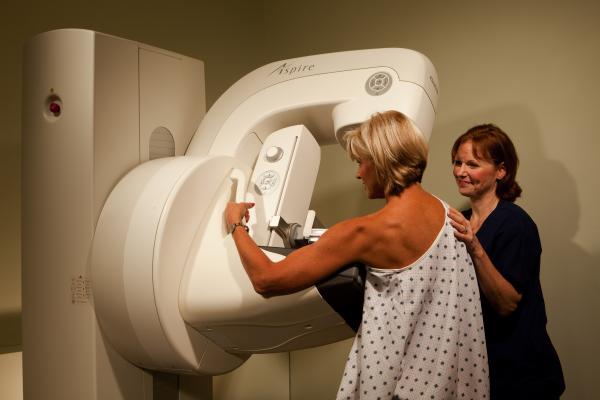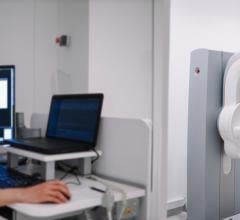
November 28, 2016 — In the largest-ever study on screening mammography outcomes, researchers found that there is no clear cut-off age to stop breast cancer screening. The findings were presented at the annual meeting of the Radiological Society of North America (RSNA), Nov. 27-Dec. 1 in Chicago. This research adds support for guidelines that encourage screening decisions based on individual patients and their health status.
Mammography is the standard imaging exam for breast cancer screening. Guidelines on what age to stop breast cancer screening have been a source of controversy and confusion in recent years. In 2009, the United States Preventive Services Task Force (USPSTF) released new guidelines that stated there was not enough evidence to assess the balance of benefits and harms of screening mammography in women aged 75 years or older.
"All prior randomized, controlled trials excluded women older than 75, limiting available data to small observational studies," said Cindy S. Lee, M.D., assistant professor in residence at the University of California, San Francisco. "There has been a lot of controversy, debate and conversation regarding the different breast cancer screening guidelines, even among major national organizations, over the past few years."
Using data from the National Mammography Database, Lee and her research team analyzed data from more than 5.6 million screening mammograms performed over a seven-year period between January 2008 and December 2014 in 150 facilities across 31 states in the United States. The research team looked at patient demographics, screening mammography results and biopsy results. Data from more than 2.5 million women over age 40 were sorted into patient groups by age in five-year intervals (40-44, 45-49, etc.).
Four standard performance metrics were calculated to evaluate the performance of screening mammography for each age group: cancer detection rate, recall rate, positive predictive value for biopsy recommended (PPV2) and biopsy performed (PPV3). Recall rate is the percentage of patients called back for follow-up testing after a screening exam. Positive predictive value reflects the percentage of cancers found among exams for which biopsy was recommended or performed. Ideal screening performances would have a higher cancer detection rate, PPV2 and PPV3, and a low recall rate.
Overall, researchers found mean cancer detection rate of 3.74 per 1,000 patients, recall rate of 10 percent, PPV2 of 20 percent and PPV3 of 29 percent. Based on increasing age from 40 to 90 years old, these performance metrics demonstrated a gradual upward trend for cancer detection rate, PPV2 and PPV3, but a downward trend in recall rate.
"The continuing increase of cancer detection rate and positive predictive values in women between the ages of 75 and 90 does not provide evidence for age-based mammography cessation," Lee said.
The findings lend support to the argument that the decision whether or not to stop screening should be informed by an individual's personal health history and preferences.
"We know that the risk of breast cancer increases with age," Lee said. "With the uncertainty and controversy about what age to stop breast cancer screening, we want to address this gap in knowledge using a large national database."
For more information: www.rsna.org


 April 18, 2024
April 18, 2024 








